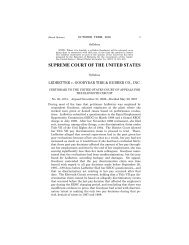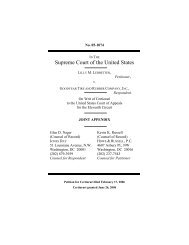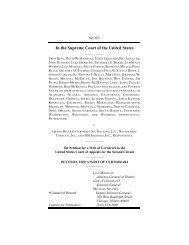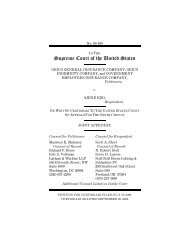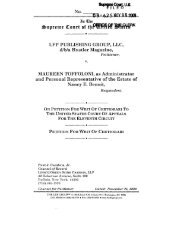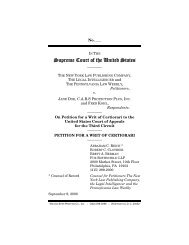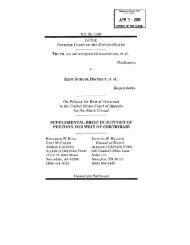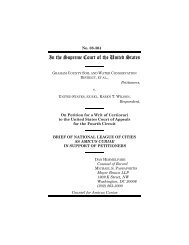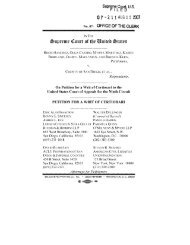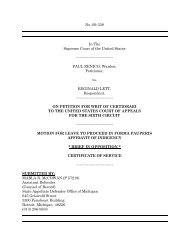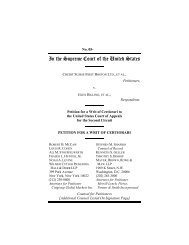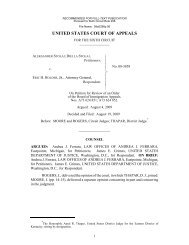Petition for certiorari - SCOTUSblog
Petition for certiorari - SCOTUSblog
Petition for certiorari - SCOTUSblog
Create successful ePaper yourself
Turn your PDF publications into a flip-book with our unique Google optimized e-Paper software.
21<br />
familiar." Craw<strong>for</strong>d, 541 U.S. at 56 n.7. In Davis v.<br />
Washington, this Court further explained that<br />
statements made to police officers "are testimonial<br />
when the circumstances objectively indicate . . . that<br />
the primary purpose . . . is to establish or prove past<br />
events potentially relevant to later criminal prosecution."<br />
126 S. Ct. at 2273-74.<br />
State <strong>for</strong>ensic examiners’ crime laboratory reports<br />
fall squarely within this class. Forensic examiners in<br />
Massachusetts, as elsewhere, create such laboratory<br />
reports at the behest of police officers "<strong>for</strong> the<br />
en<strong>for</strong>cement of law." Mass Gen. Laws ch. 111 § 12; see<br />
also Hinojos-Mendoza, 2007 WL 2581700, at "14 (drug<br />
certificates are created "in anticipation of criminal<br />
prosecution"). The reports are <strong>for</strong>mal, sworn statements.<br />
Mass. Gen. Laws eh. 111 § 13; see App. 24a-<br />
29a. And they are <strong>for</strong>thrightly offered "in lieu of<br />
present testimony at trial." Caultield, 722 N.W.2d at<br />
309; see also Verde, 827 N.E.2d at 704 n.1, App. 14a<br />
n.1 (certificates are offered to avoid "having the<br />
analyst called as a witness in each ease"). They thus<br />
are exactly the kind of "solemn declaration[s] or<br />
affirmation[s]" that Craw<strong>for</strong>d and Davis characterized<br />
as quintessentially testimonial. Craw<strong>for</strong>d, 541 U.S. at<br />
51; Davis, 126 S. Ct. at 2274.<br />
Further, although this Court has never squarely<br />
decided the issue, it has assumed on several occasions<br />
that the prosecution may not introduce a crime laboratory<br />
report as a substitute <strong>for</strong> presenting live<br />
testimony from a <strong>for</strong>ensic examiner. As early as 1912,<br />
this Court stated that certain pretrial "testimony,"<br />
including an autopsy report, "could not have been<br />
admitted without the consent of the accused . . . be-



